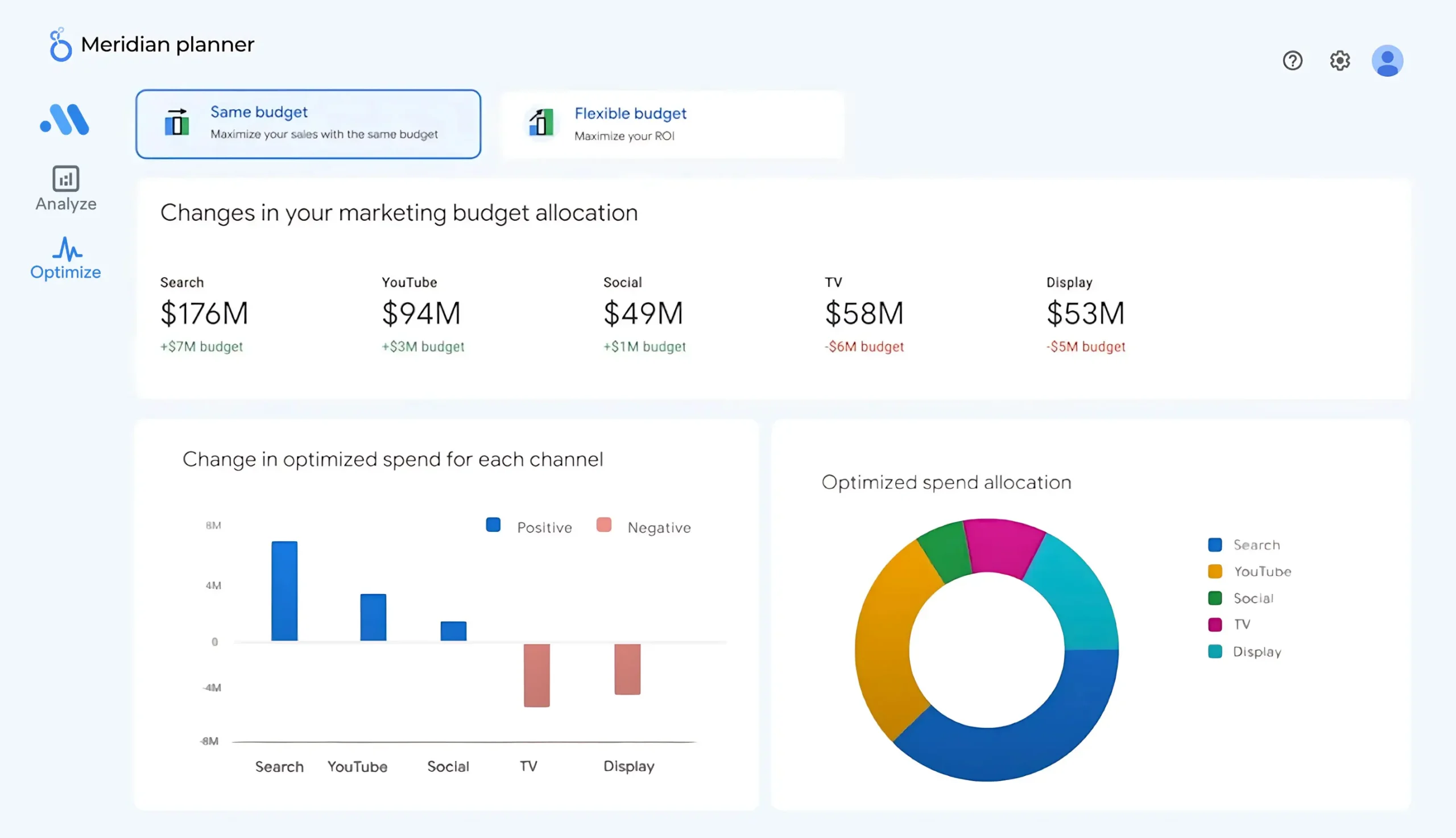
I first heard about Meridian from a co-worker who was talking about the future of BigQuery data and how large companies are using modeling techniques to make predictions.
At the time, I didn’t think much of it—just another BigQuery tool, right? A quick Google search didn’t help much either; back in January, the only real information available was Google’s initial announcement. However, with more recent releases and some hands-on testing, it’s become clear that Meridian could represent a significant step forward for anyone who has the data ready to use.
More precisely, Google Meridian is raising a fundamental question: Does marketing mix modeling (MMM) remain an elite, resource-intensive methodology accessible only to major enterprises, or is Google ushering in a new paradigm of accessibility through the integration of BigQuery and machine learning-driven analytics?
The emergence of Google Meridian signals a potential paradigm shift, reconfiguring how organizations—regardless of scale—can engage with high-fidelity marketing measurement in a privacy-centric digital economy.
Making Marketing Measurement Accessible
For decades, MMM has served as a cornerstone of marketing analytics, offering a rigorous econometric framework to quantify the impact of marketing investments. However, its reliance on extensive data engineering, high computational costs, and bespoke statistical modeling has largely confined its adoption to corporations with robust analytical capabilities. Google Meridian seeks to reduce these barriers by integrating machine learning methodologies and open-source models, along with automatic integration with Google’s own MMM Data Platform, which allows for the unique use of Google Query Volume (i.e. Organic Search volumes) as a control variable.
For us, it is interesting because it also can integrate easily with BigQuery, and if any advertiser has been using the automatic integrations from Google Ads, GA4, and Search Console (something we strongly recommend all advertisers start doing), then it will be much easier to reach statistically significant data thresholds.

BigQuery and Meridian
Central to the functionality of Google Meridian is the seamless integration with BigQuery, especially as a potential substitute for Google’s MMM Data Platform, which is proving a little difficult to access for many of our clients.
Generally speaking, finer data granularity provides more accurate insights and can help identify actionable results. Since BigQuery can store a wide range of data in an automated way from GA4, Google Ads, and Search Console (in addition to 1st party data clients can provide), it’s much easier to meet the requirements to create a successful MMM analysis.
For example, collecting data at various geo levels can be great for geo-level nuances and utilizing Meridian’s hierarchical Bayesian framework to yield tighter credible intervals on ROI estimates. Usually certain geo regions may exhibit low observation volumes, making them unsuitable for model estimation, but even filtering for the most robust geo-level data is easier if this data has been stored in BigQuery over a long enough time period.
Other good practices are to collect data at a weekly level, as weekly data provides an optimal balance between data variability and noise, improving model accuracy compared to daily or monthly data. This is also why it’s good to have 2-3 years worth of data for an appropriate MMM analysis, although we are testing shorter time periods, especially with Meridian and using Google Ads campaign & geo-level data with Google Query Volumes and similar Meta and LinkedIn data.
We also test daily and monthly data points, to see if it significantly changes the outputs. Of course monthly data requires a longer time period of historical data, so we tend to only test this on much older data sets, which tend to mean bigger companies.
Conclusion: The Evolution of Marketing Attribution in a Privacy-Driven World
Google Meridian signifies a strategic push from Google in expanding the marketing measurement landscape, aiming to bridge the gap between advanced econometric modeling and scalable, AI-driven attribution methodologies. By embracing this shift, organizations can foster more resilient, privacy-compliant marketing strategies that transcend the limitations of traditional tracking-based analytics. With BigQuery and Google Meridian together, we see an opportunity for businesses to efficiently manage, analyze, and leverage their marketing data at an unprecedented scale.
In an era characterized by regulatory flux and data obfuscation, firms that proactively test new approaches to measurement, such as Meridian’s machine learning-enhanced modeling capabilities, will secure a competitive advantage in the dynamic digital marketing ecosystem.

To learn more about how we can optimize your data for precise marketing insights, check out our Applied Marketing Data Science Services. Our team is here to help you leverage advanced analytics, streamline your data processes, and enhance your marketing strategies.
